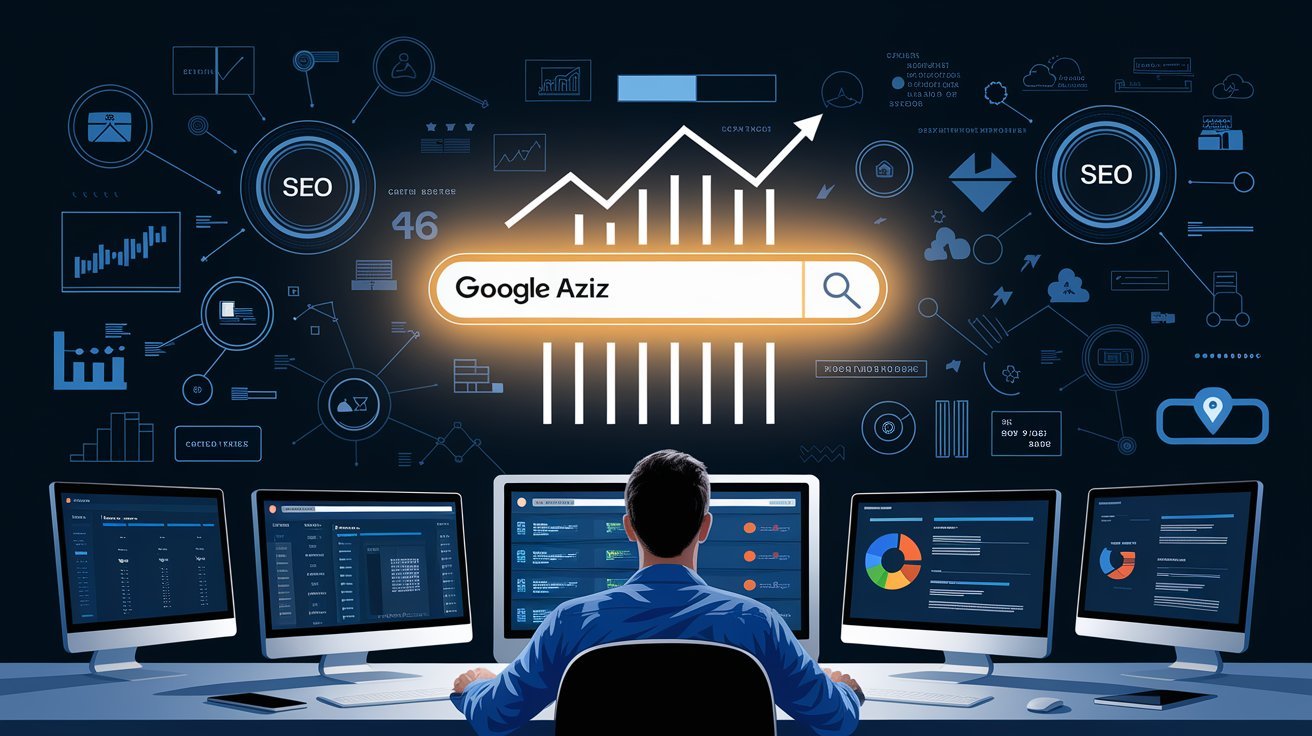Table of Contents
Toggle1. Introduction
If you own a website, you probably dream of landing on Google’s first page. After all, studies show that 75% of users never go past the first page of search results. But with millions of websites competing for the top spots, how can you stand out?
This is where David Aziz, a renowned SEO expert, comes in. With years of experience in digital marketing, David has helped businesses dominate search rankings using proven SEO techniques.
In this guide, you’ll learn step-by-step strategies to improve your website’s ranking, from keyword research to technical SEO and beyond. Let’s dive in!
2. Understanding Google’s Ranking Algorithm
Google’s algorithm is complex, but understanding its key ranking factors will give you a competitive edge.
How Google Ranks Websites
Google’s search bots crawl and index billions of pages, ranking them based on relevance, authority, and user experience.
Key Ranking Factors in 2025
| Factor | Importance |
|---|---|
| High-quality content | Crucial for engagement and rankings |
| Backlinks | Indicates website credibility |
| Page speed | Faster pages rank higher |
| Mobile-friendliness | Essential for mobile search rankings |
| User experience (UX) | Lower bounce rates improve rankings |
AI and Machine Learning in SEO
Google’s AI (like RankBrain and BERT) analyzes search intent to deliver more relevant results. Optimizing for natural language queries is now a must!
3. Keyword Research: The Foundation of SEO

Keyword research is essential for targeting the right audience.
How to Find High-Ranking Keywords
- Use tools like Google Keyword Planner, Ahrefs, or SEMrush
- Focus on low-competition, high-volume keywords
- Identify long-tail keywords for better conversion rates
| Keyword Type | Example | Benefit |
|---|---|---|
| Short-tail | “SEO” | High competition, broad searches |
| Long-tail | “How to improve website SEO in 2025” | Lower competition, higher conversion |
4. On-Page SEO: Optimizing Your Content
How to Write SEO-Friendly Content
- Use keywords naturally in headings and throughout the article
- Write engaging, high-quality content (at least 1500+ words)
- Use structured formatting (H1, H2, H3) for better readability
Optimizing Meta Tags, URLs, and Headings
- Title tag: Keep it under 60 characters, include keywords
- Meta description: Write a compelling summary (150-160 characters)
- SEO-friendly URL: Use short, descriptive URLs (e.g.,
yourwebsite.com/seo-tips-2025)
Image and Video Optimization
- Use descriptive alt text for images
- Compress images for faster loading speeds
- Add video transcripts for better indexing
5. Technical SEO: Enhancing Website Performance
Website Speed & Mobile Optimization
- Use Google PageSpeed Insights to test loading speed
- Compress images and use lazy loading
- Optimize for mobile-first indexing
Fixing Site Errors
- Use Google Search Console to detect and fix broken links
- Implement 301 redirects for outdated pages
6. Off-Page SEO: Building Authority and Backlinks

Importance of Backlinks
Backlinks act as votes of confidence for your website. The more quality backlinks you have, the higher you rank.
How to Earn High-Quality Backlinks
- Guest blogging on reputable sites
- Creating shareable infographics and reports
- Engaging in PR and media outreach
Avoid Black-Hat SEO
- No buying backlinks
- No spammy links or keyword stuffing
7. User Experience (UX) and SEO
A well-structured website keeps users engaged, reducing bounce rates and increasing dwell time.
Ways to Improve UX
- Simplify website navigation
- Use clear CTAs (call-to-actions)
- Improve site readability with short paragraphs and bullet points
8. Content Marketing Strategies for SEO Success
Content marketing boosts SEO by attracting traffic and building authority.
Best Content Strategies
- Publish high-quality blogs regularly
- Use video content and infographics
- Leverage social media for content distribution
9. Measuring SEO Success: Tracking Performance Metrics

Key SEO Metrics to Monitor
| Metric | Importance |
|---|---|
| Organic Traffic | Measures site visitors from search engines |
| Bounce Rate | High bounce rate = poor UX |
| Conversion Rate | Tracks how many visitors take action |
Use Google Analytics & Search Console to analyze data and improve performance.
10. Conclusion
Ranking on Google’s first page takes time, but by implementing David Aziz’s SEO strategies, you can achieve long-term success.
Key Takeaways:
✅ Keyword research and content quality matter most
✅ Backlinks and UX improve rankings
✅ Technical SEO and mobile optimization are essential
Start applying these techniques today and watch your website climb the search rankings! 🚀
Frequently Asked Questions (FAQs)
1. How long does it take to rank on Google’s first page?
The time required to rank on the first page of Google depends on factors like keyword competition, content quality, and backlinks. On average, 3 to 6 months is a realistic timeframe for well-optimized websites.
2. What is the fastest way to improve my Google ranking?
To quickly improve your ranking:
- Optimize your website speed and mobile responsiveness
- Use high-ranking keywords strategically
- Earn quality backlinks from authoritative sites
- Publish valuable and SEO-friendly content consistently
3. Do backlinks still matter for SEO in 2025?
Yes! High-quality backlinks from authoritative sites remain one of the top Google ranking factors. However, spammy or purchased backlinks can hurt your SEO, so focus on natural link-building strategies.
4. Can I rank on Google without backlinks?
While possible, it’s very difficult to rank without backlinks. Strong on-page SEO, high-quality content, and excellent user experience can help, but backlinks provide authority and trust, making ranking much easier.
5. What are the biggest SEO mistakes to avoid?
The most common SEO mistakes include:
❌ Keyword stuffing (overusing keywords unnaturally)
❌ Ignoring mobile optimization
❌ Slow website speed
❌ Low-quality or duplicate content
❌ Neglecting technical SEO (broken links, missing meta tags, etc.)
By avoiding these mistakes and implementing expert strategies, you can increase your chances of ranking on Google’s first page! 🚀

